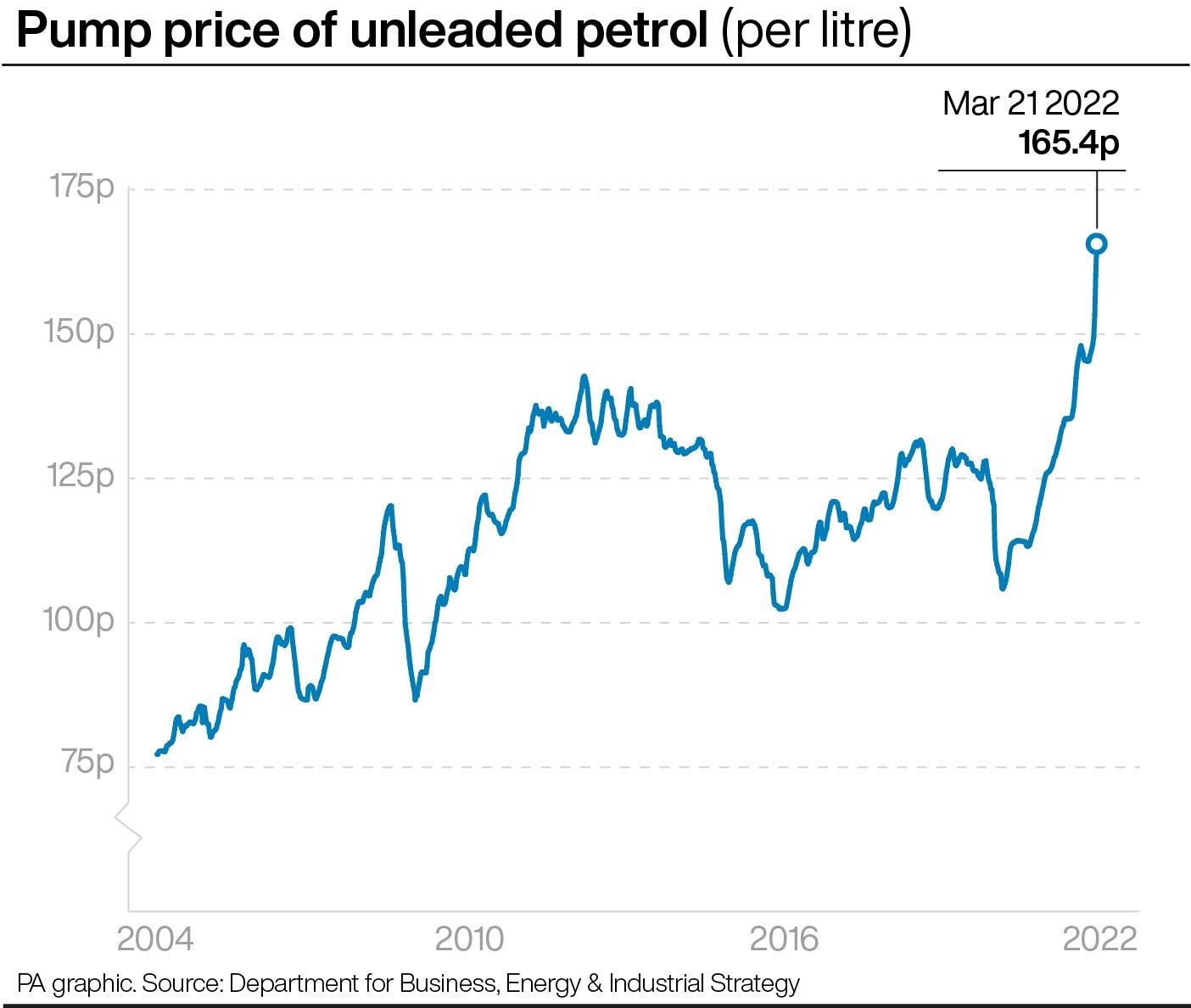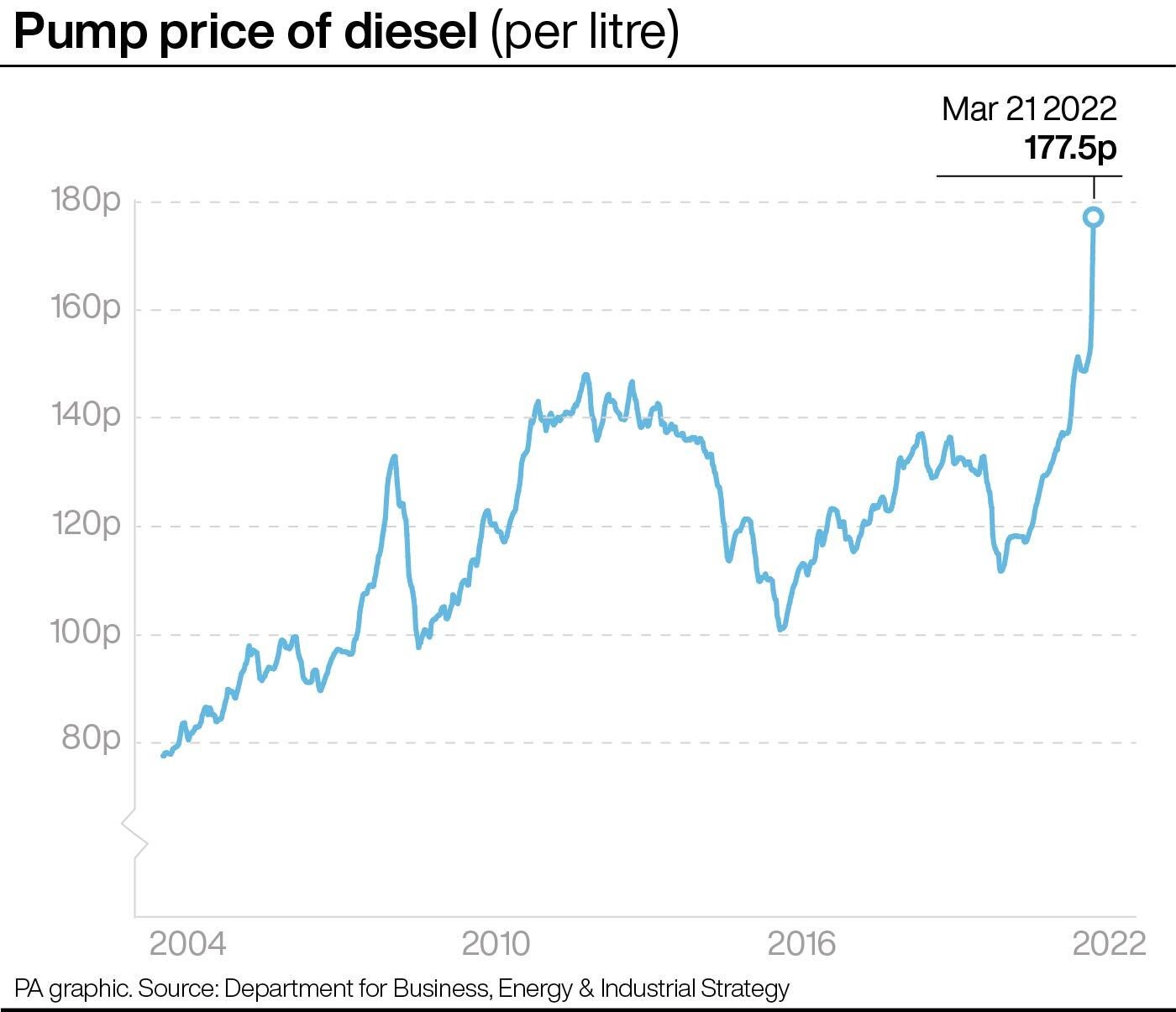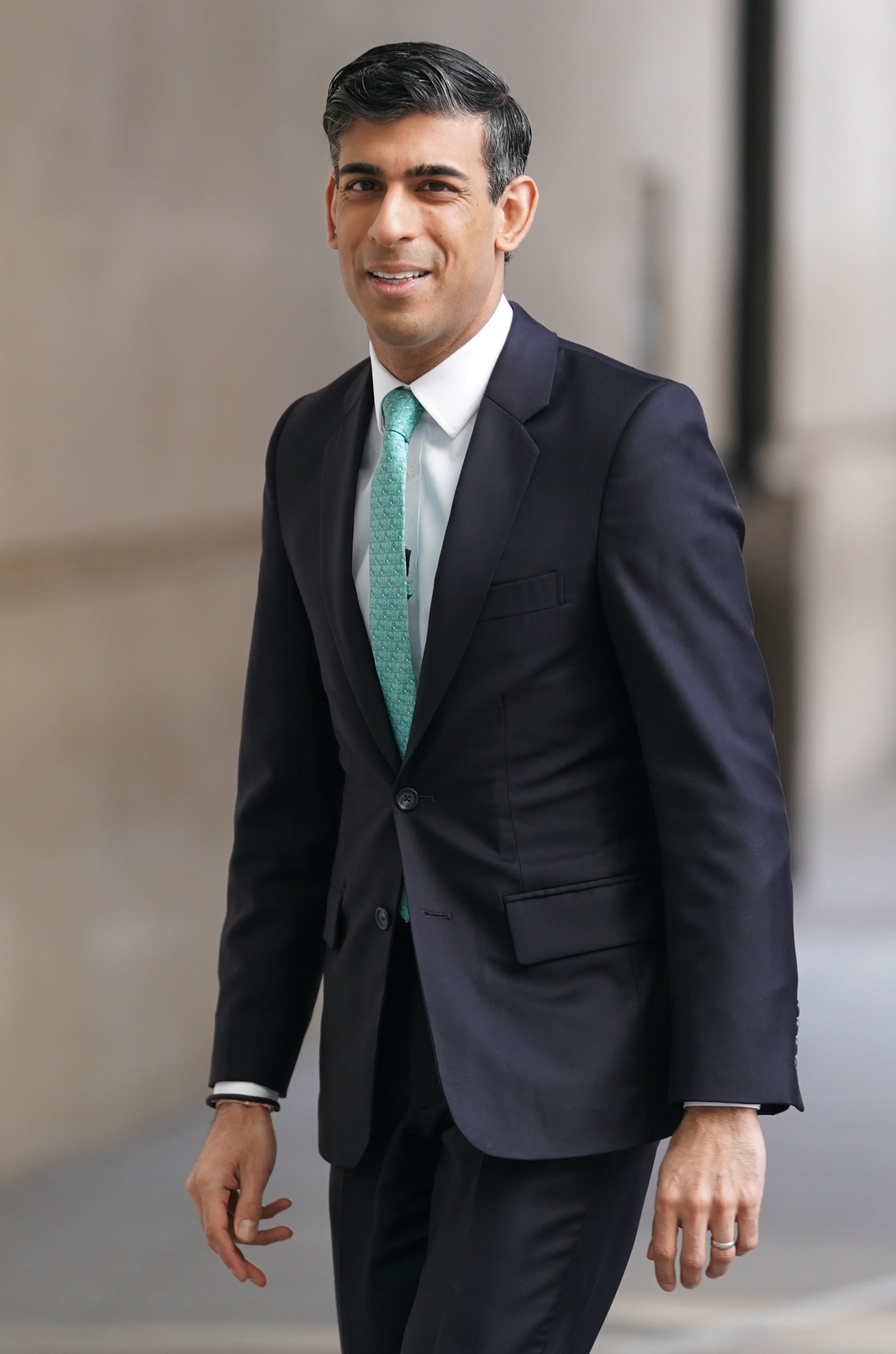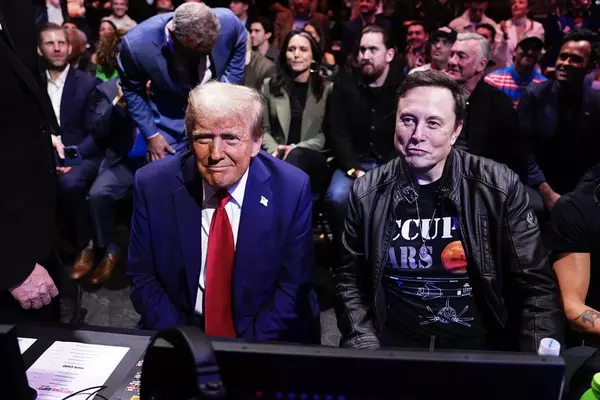
Chancellor Rishi Sunak is reportedly considering a cut in fuel duty of up to 5p per litre in his spring statement.
Here, the PA news agency answers eight key questions about taxes on fuel.
– What is fuel duty?
Fuel duty is levied at a rate of 57.95p per litre for petrol and diesel.

– How long has it been at that level?
It has been frozen since March 2011.
– What about VAT?
VAT is added on top, at a rate of 20% of the combined product price and duty.

– What are the latest average pump prices?
The average cost of a litre of petrol at UK forecourts on Tuesday was 167.3p, while diesel was 179.7p, figures from data firm Experian Catalist show.
This is an increase of 18p per litre for petrol and 27p for diesel over the past month.
– Why have prices reached record highs?
Oil prices surged immediately after Russia’s invasion of Ukraine due to supply fears, leading to a rise in wholesale costs.

Prices were already increasing as global economies recover from the coronavirus pandemic.
– How much would I save if fuel duty is cut by 5p per litre?
The RAC calculated this would reduce the cost of filling a typical 55-litre family petrol car by around £3.
– What impact could the transition to electric cars have?
(The Chancellor) should only cut fuel duty if he can make an equivalent cut to the costs of public transport
The switch from traditionally fuelled cars to battery-powered models could cause the Treasury’s annual fuel duty income from cars to drop from £16.4 billion in 2019 to £11.4 billion in 2028, according to analysis by the RAC Foundation.
– What are environment groups saying about a potential reduction in fuel duty?
Dr Doug Parr, policy director at Greenpeace UK, said Mr Sunak “should only cut fuel duty if he can make an equivalent cut to the costs of public transport”.







